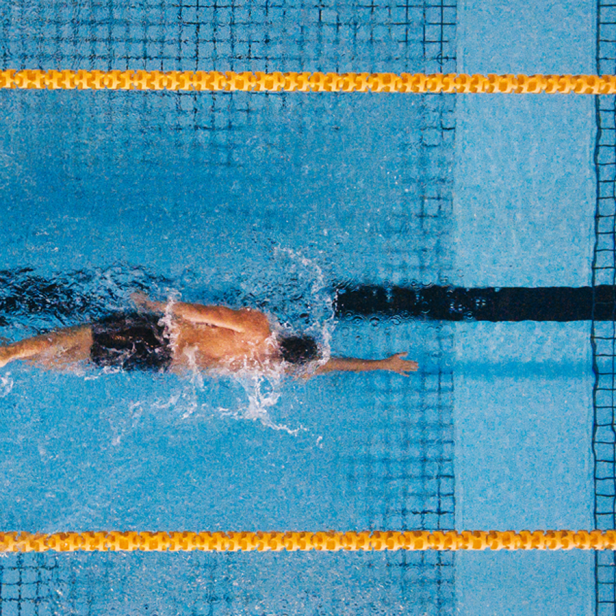
Swimming Really Does Make You Hungrier Than Other Forms of Exercise
You may want to hit the pool to drop the pounds.
We've all heard you're not supposed to swim right after you eat (which is a myth, by the way). But have you ever wondered why you're more famished after swimming than after running or biking? You're not alone. It turns out there's a scientific reason—and it could benefit swimmers in the long run.
Cold Equals Calories
Though it may feel like swimming simply burns more calories than other exercises, which could explain the increase in appetite, that's not the case. According to Harvard Health Publications, swimming laps, running at a 9-minute-per-mile pace, and bicycling at 15 miles per hour all burn about 800 calories an hour for a 155-pound person. No help there.
But a 2005 study conducted by the University of Florida provided an important clue as to why you're ready to eat a horse when you get out of the pool: people tend to eat more calories after exercising in cold water than in warm water. In the study, students who exercised in cold water ate 44 percent more calories than those who exercised in warm water. That means the fact that swimming in a pool makes you colder than exercising in the open air may be to blame for your increase in appetite. According to co-author Rudolph H. Dressendorfer, this could be because feeling cold constricts your blood vessels, which may prevent the release of hormones that would normally make you less hungry — akin to why an animal eats more when preparing for winter hibernation.
A Silver Lining
It's not just casual swimmers who feel hungrier — athletes get ravenous after swim workouts, too. In fact, studies have shown that collegiate swimmers have higher body fat levels than their runner counterparts. It seems unlikely that this would be because swimmers care less about their diets than runners, and points to something else at play. It could be that body fat gives swimmers an advantage. More body fat makes for smoother curves, which provide less resistance in the water. Fat is also less dense than muscle, which gives it more buoyancy and helps keep swimmers' bodies afloat.
But what about for the rest of us? There's no reason to shy away from the pool, even if weight loss is your goal. Aquatic aerobics are particularly effective for those who are overweight and accustomed to sedentary lifestyles, for instance, since they're easier on the joints than running. If you're looking to lose weight through exercise, there are a few options to make sure you're doing it effectively. You could just swim for fun and jump on the treadmill, bike, or elliptical for a real cardio workout. You could also take a brisk walk after you swim to raise your body temperature before grabbing a post-workout snack. In any case, it's a good idea to have healthy foods with low calorie counts on hand. Just please, don't eat a horse.
This article first appeared on Curiosity.com.


















